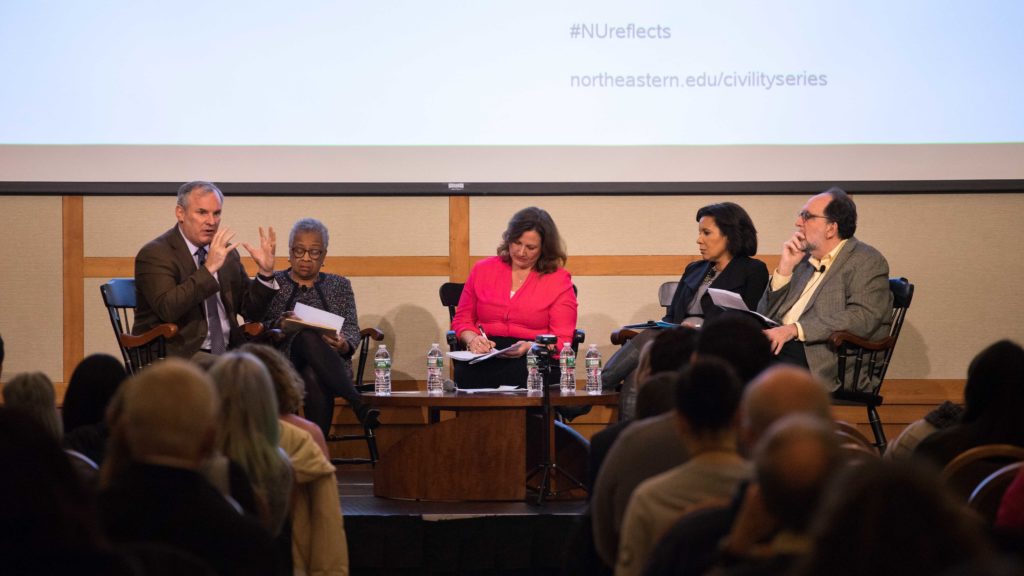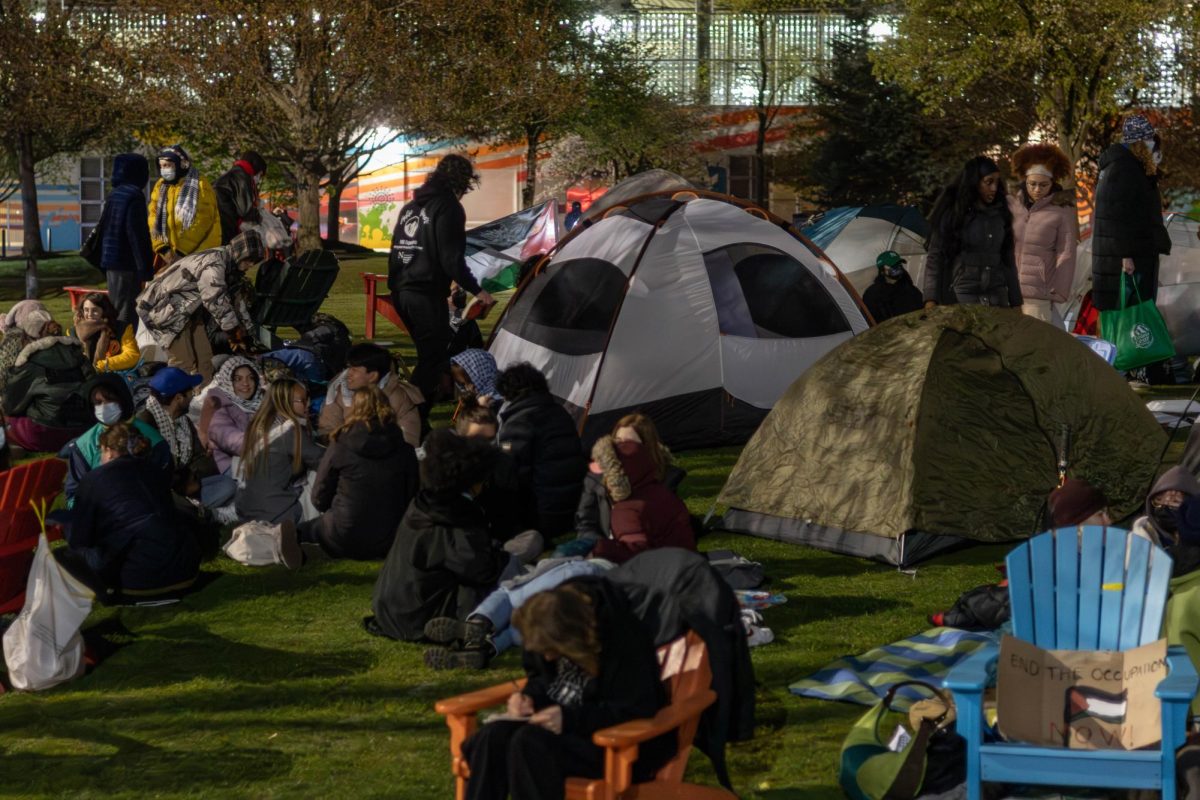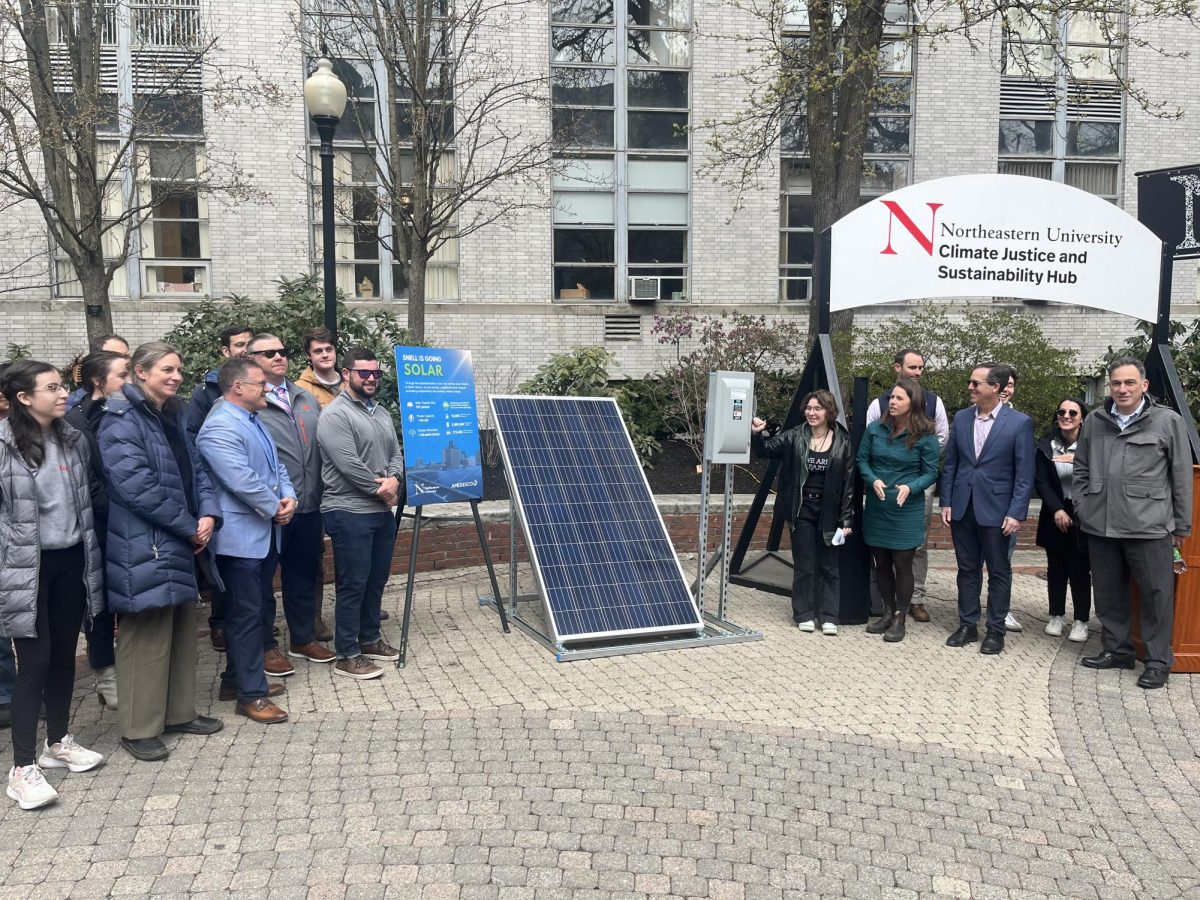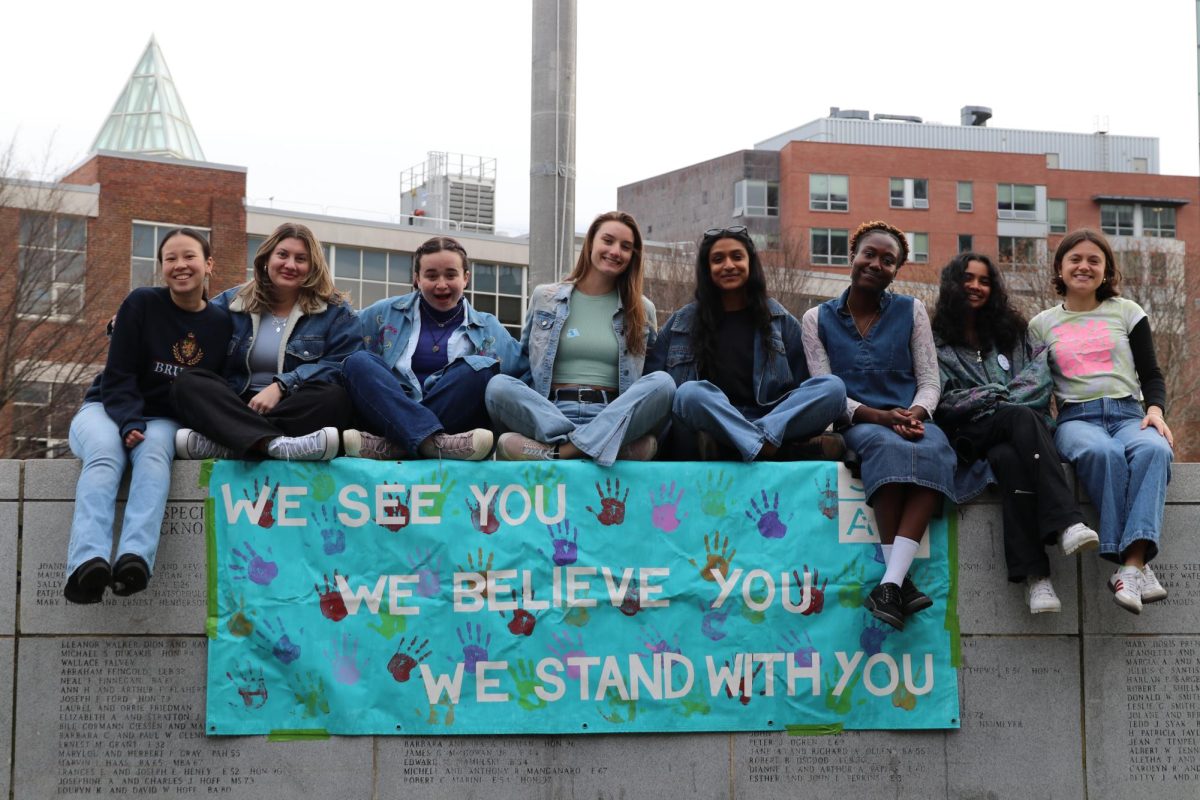By Irvin Zhang, news correspondent
Northeastern professors encouraged students to break out of their political bubbles and have open, honest discussions at a panel Tuesday in the Curry Student Center.
The panel, called “Transitions in Democracy,” focused on changes in social activism, the press and civil law that may take place following the inauguration of President Donald J. Trump.
It was one in a series of talks and presentations aiming to increase respectful conversations on campus so that those with diverse opinions can find common ground. Panelists included School of Journalism director Jonathan Kaufman, School of Law professor Margaret Burnham, political science professor Stephen Flynn and assistant professor of communication studies Carole Bell.
“I think that one of the things that Northeastern wants to do is create a place where people can have an open and honest discussion,” Kaufman said in an interview before the panel. “We want to make the campus a place where people from different backgrounds can be open about their views.”
The panel looked at the different issues relating to Trump’s election, and much of the discussion focused on his administration’s current relationship with the press and what to expect going forward.
“One of the lessons that everyone in the media learned starting at 9:30 on election night is that there was way too much punditry, way too much reliance on polls and not enough going out and talking to people,” Kaufman said. “This ended up blinding a lot of reporters and editors to what was really happening in the election.”
Kaufman also told a story about how, after the election, one of his students told him that she finally felt safe to “come out as a Republican.” He said this made him realize how closed off people can be to those with differing opinions and beliefs.
Northeastern 2016 alumna Marissa Korn said the panel gave her a new perspective on what sources she gets her news from.
“I think it was important to hear them talk about supporting journalism and media, and actual substantive forms of media,” Korn said. “One question I had was which magazines and news outlets should I start subscribing to, as I realized from their message that I need to branch out more and subscribe to different organizations.”
Burnham led the discussion on transitions in protests and social change. Burnham talked about the effectiveness and ineffectiveness of demonstrations, such as the recent Women’s March on America that took place in Washington D.C. and cities across the globe.
“The question as we move forward is how do we maintain a movement that is value driven, that rejects top-down models of social change, while still being effective and while costs of participation are low enough so that masses of people can participate,” Burnham said.
Sneha Pandya, a senior English major, said she felt that the panel was a great way for the College of Social Sciences and Humanities to bring in a diverse crowd.
“[Panels like this] keep us civically engaged, informed and educated, even for those students who may not be in majors that often have these spaces,” Pandya said. “I think it’s a great choice on the part of the College of Social Sciences and Humanities, as one of the schools who can provide a space like this.”
Christian Triunfo, a freshman English and journalism double major, said he was inspired by the overarching message of engaging in honest and open conversations.
“I’m going to try to engage people in conversations and make politics a thing that’s not taboo anymore,” Triunfo said.
To wrap up the discussion, Kaufman and the other panelists encouraged conversation across political affiliations to ease polarization.
“If we continue to live in our separate Twitter feeds, our separate Facebook postings, we are never going to come together,” Kaufman said. “But if I can hear your pain and anguish, and you can hear mine, then at least on some ways, you can begin to understand where I’m coming from and then maybe we can come together. This is where conversation can start.”
Photo by Alex Melagrano











